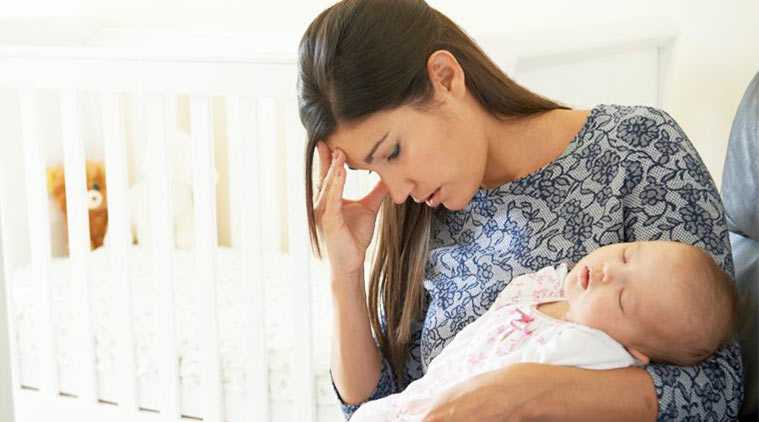Two moms reveal what postpartum depression feels like — know the symptoms
13 August, 2018

“After delivering my daughter, I had the baby blues in the first month. This meant that I would start crying without a real reason, just being overwhelmed by the thought that I am a mother now. I realize now that I used to snap a lot during that time. I was irritated and vulnerable. I was attached and yet detached from my child. I took great care of her but the thought of feeling useless never left my mind,” says Anushka Bhartia, a blogger, about her experience as a new mother.
While we are mostly aligned with the concept that motherhood is a beautiful and life-altering experience, there’s an alternative reality as well. A reality where a mother may question if having a baby was the right choice.
In a conversation with indianexpress.com, Dr Kamal Khurana, a senior psychologist, Credihealth, explained the reasons can vary. He feels the lack of love between the partners is the most obvious cause. Other reasons include forced pregnancy or the shift of attention to the child after birth. He adds that maybe women are not able to communicate their unwillingness at that time and postpartum depression (PPD) manifests as a result of that.
A few days ago, Serena Williams, the winner of 23 Grand Slam titles confessed to going through postpartum depression after the birth of her daughter in September 2017. In an Instagram post, the tennis star wrote, “Last week was not easy for me. Not only was I accepting some tough personal stuff, but I just was in a funk. Mostly, I felt like I was not a good mom.”
The mother may have suicidal thoughts during this time, says Dr Mrinmay Das, consultant psychiatrist, Jaypee Hospital. He adds, “Symptoms include mood swings, not eating or sleeping properly, not able to look after the baby, sometimes behaving like a psychotic person putting herself and her baby in danger. There’s a significant personal distress that there may be suicidal thoughts or of even killing the baby”.
According to Bhartia, family support is what a mother needs during these dark days. She adds, “As I had read on the topic (PPD), I knew what I was going through. I feel this helped me a lot as I didn’t resist it. I took it as a normal occurrence after childbirth. But it’s almost been two years since and I still struggle with the feeling of not being able to do enough, as a woman and a mother. Family support, especially your spouse’s, can lessen the suffering of postpartum depression. It’s important to provide her with all the love and care that’s possible.” It was Buddhism and chanting that helped her overcome her depression.
Tanushree Ghosh, an activist, artist, writer and a mother of a 3-year-old recalls it as “a horrible experience”. She went through PPD for more than a year — “after the birth I felt no attachment with my daughter and was more drawn towards my career. I went back to work six weeks after giving birth.” But she had an irritated feeling while at work as well.
Ghosh, who had a long history with anxiety did have prior knowledge about the subject but never realised she too may need proper medication and diagnosis for her condition. For her, the child seemed like an obstacle then — neither she wanted to breastfeed nor stay at home. And yet at the same time, she was worried about her daughter. Later on, she sought medical help and found she had both PPD and PPA (postpartum anxiety) and had to go through proper diagnosis to get herself treated.
Although PPD is a common issue, most women are not aware of it. It’s important to seek medical help once you realise it.
